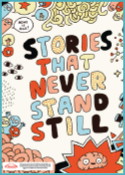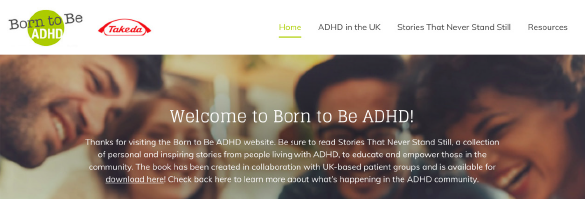Unfortunately, there are many ideas about ADHD that are
simply not true, and some people have negative feelings about it. But, ADHD isn’t an illness, and
it’s not contagious, so don’t feel you have to say anything to anyone!
However, now you’ve found out about having ADHD, you might feel you need to tell everyone about it. Think CAREFULLY before you talk to people about your ADHD, as once you’ve told someone, you can’t ‘untell’ them – so it’s important to get it right.
If you have one particular friend who you know you can really trust, maybe you want to tell them first, so you can get their thoughts and maybe find out if they can help you. You might find it easier to talk to them outside of school, on the phone, or maybe on a sleepover.
If you have several close friends, you might feel more comfortable sharing your news with them as a group. Just be careful to think about whether everyone in the group is really a good friend and whether you trust them to have your best interests at heart.
If you want to tell your brother or sister about your ADHD, think about whether you want to do this alone in your own way, or with a parent or carer.
Whoever you tell, remember that most people don’t know about ADHD, so you’ll have to explain about how your brain is slightly different, and why you might behave differently from others. Think about what you want them to know about you and ADHD, and practice it in your head before saying it. Don’t make a big deal about it and remember you don’t have to tell them everything – just what you are comfortable with.
Think about these arguments for and against telling people, and maybe talk it over with your parent or carer.
-
It will help friends, family and teachers understand you better
-
Friends, family and teachers can support and help you
-
You will be in control of the situation and of what is said
-
Friends, family and teachers may be more understanding if they know about your ADHD
-
Friends, family and teachers might help you avoid situations where you could become more anxious or upset
-
People may not know much about ADHD, or what they know may be outdated or wrong
-
People may tell others who you don’t want to know
-
What if someone puts it on social media like Facebook, Instagram or Snapchat – are you OK with this?
-
If the wrong person finds out, it may have results you don’t want
-
People might treat you differently
-
You have plenty of time to tell people about your diagnosis, so take your time
-
Learn as much as you can about ADHD, because this will give you the confidence to discuss how it affects you
-
There are many ADHD-specific resources to help you. Check out the Resources section of this website for a few that you may find useful, but there are lots more that you may find great: use the Internet and ask around to find out
-
Choose wisely: not everybody needs to know. The decision on who to tell is yours
-
And never forget: you have lots of strengths to be proud of!






